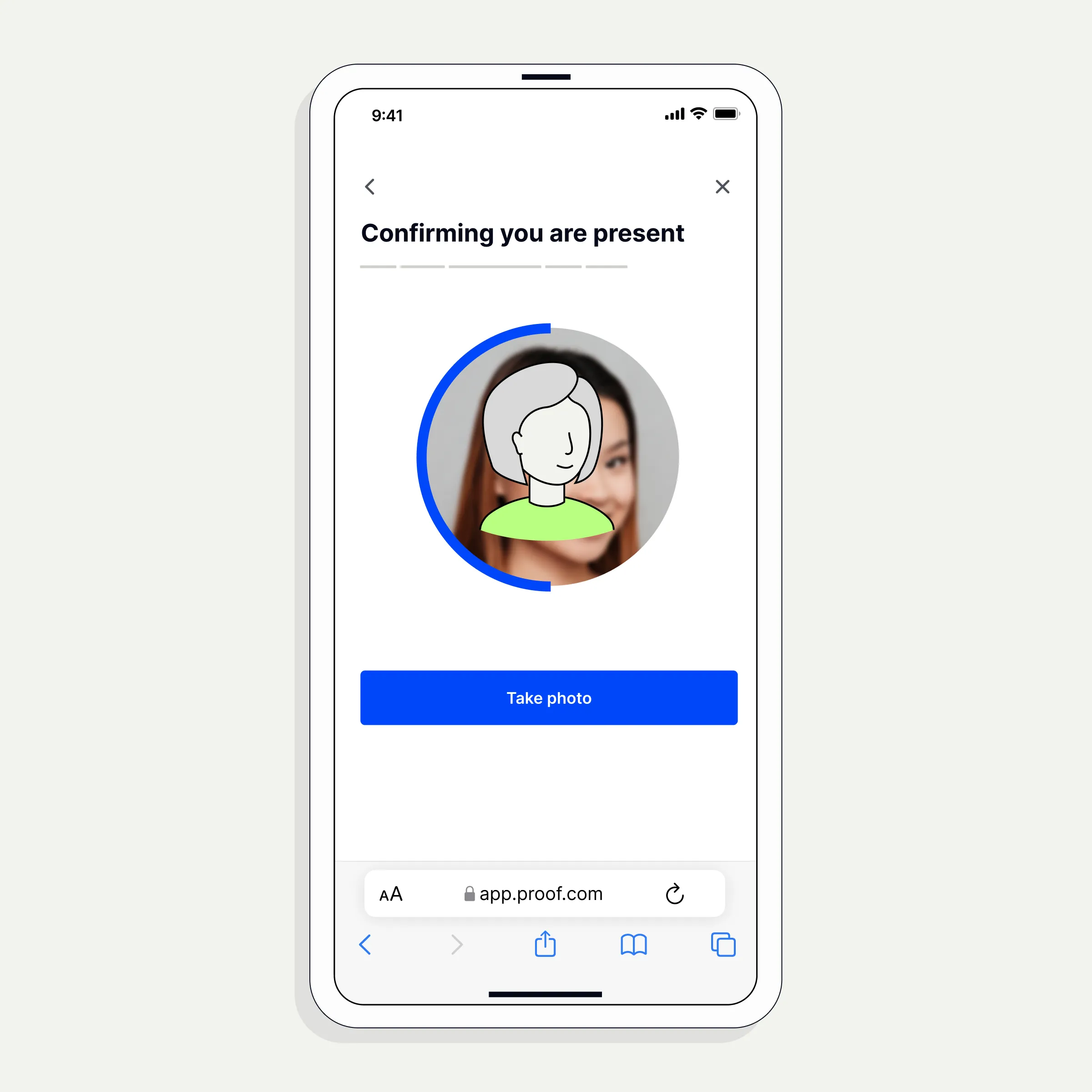
Before meeting with a notary, online or in-person, it's important to make sure you have the proper form(s) of identification available and ready. ID requirements vary by state. Your notary will have access to specific requirements for the state in which they are commissioned. It's also important to note that blurry photos of IDs are not acceptable. If the ID is not clear, you will be asked to retake the photos. A U.S. social security number is also required in order to verify identity.
Acceptable Primary Forms of ID for Notarizations
All IDs must include a photographic image of your face:
- U.S. state-issued driver’s license
- U.S. state-issued photo ID
- U.S. Passport Book
- Certificate of U.S. citizenship
- Certificate of naturalization
- Foreign passport
- Alien registration card with photo (green card or permanent resident card)
Not Accepted: Military IDs & Inmate/Prisoner IDs
Acceptable Secondary Forms of ID
If you've recently changed your name and it no longer matches the ID you're using for identity verification purposes, you must provide a secondary ID that reflects your new name. Your primary ID can have your former name as long as your secondary ID has your current name.
All secondary forms of ID must display your name (the signer's name):
- Social security card
- U.S. Govt., government-issued visa
- Birth certificate
- Non-U.S./Canadian driver's license
- Most recent, signed tax returns
- Property tax bill
- Voter registration card
- Organizational membership card
- Bank/investment/loan statements
- Paycheck stub with name
- Most recent W-2
- Home/car/renter insurance papers
- Recent utility bill

